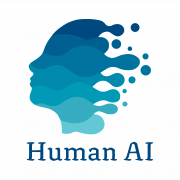What do families, teachers and students think about AI?
A study on the use, perception and knowledge of artificial intelligence.
“Empantallados” is an educational platform with a purpose: to educate healthy digital users. This initiative arises to accompany families in the digital reality of their children, because “technology influences many facets and we believe it is important to start educating them from an early age in a responsible and healthy use of technology, without waiting until they are older.”
Did you know that 65% of school-age children will work in professions not yet invented and related to technology?
AI impact in Spain
Empantallados, together with GAD3 – a social research and communication consultancy – and with the support of ” For a loving use of technology”, the European Commission and Fundación Fomento – this educational platform has presented the first study on the impact of Artificial Intelligence in education in Spain. The report shows the main data and conclusions of the research carried out at the end of 2023, and based on a survey of a representative sample of 500 families in Spain, 200 young people between 14 and 17 years old, and 200 non-university teachers.
A study that shows, among other questions, how much and for what purpose students, teachers and parents use AI, or what their concerns, opportunities and challenges are, also analyzing the use and perception of these audiences about AI.
The 10 key questions in which the study is summarized are the following:
- AI, a new technological reality that interests reality.
- The Internet and the press, gateways to AI.
- Chat GPT, one of the most widely used AI tools.
- Raising the reliability threshold and improving accuracy, challenges of AI in the short term.
- Need for a legal framework on privacy and data use.
- AI, a new digital territory to explore for students, teachers and families.
- AI, a potential educational tool.
- Creativity and critical thinking, the main challenges of AI in education.
- AI, a reinforcement in the teacher’s task, without replacing his role as an educator.
- The need to educate in the responsible use of AI.
Some relevant data
The study reflects that 57% of parents believe that AI will have a positive impact on their children’s education, a percentage that increases (61%) in relation to the positive effect that AI will have on the professional future of their children.
In the case of teachers only 39% believe that AI will have a positive impact on education and 54% believe that it will be beneficial in the future career of their students.
Regarding student efficiency, both parents and teachers see benefits in the use of AI. However, while parents believe it will enhance creativity, teachers believe it could harm it.
Parents feel more overwhelmed and have a lower understanding of AI compared to teachers and students. However, 78% of parents are very
interested in learning more about AI, compared to 63% of students. Parents are the most supportive of introducing AI tools into their children’s academic curriculum (60%).
However, teachers are more critical of their students’ use of AI, generally recommending its use to a lesser extent (33%) than parents (42%). As for the impact of AI on teachers’ work, efficiency and autonomy are the most important competencies for teachers, with the search for new information being the area where they recommend its use the most. Creativity, on the other hand, is the least important.
Creativity and critical thinking: main challenges of AI
Most families and teachers in the study believe that AI can help with practical issues, but they are more reluctant to believe that AI can develop skills such as autonomy, creativity or critical thinking: on a scale out of 10, families score 5.9 and 5.6 for both aspects. Teachers, on the other hand, give a failing grade to the ability of AI to foster autonomy and creativity: 4.5 and 4.2 respectively.
We might ask ourselves, is this not an opportunity to delegate efficient tasks to AI in order to invest and encourage our most creative side and make students students students of thought rather than students of knowledge?
As Xavier Marcet states in his recent column on knowledge workers, “In times of artificial intelligence, it is essential that people have a monopoly on questions. If you think, technology empowers you, if you don’t think, technology takes you where it wants.”
AI can become a very useful educational tool and at the same time it presents challenges in the development of key student competencies, not only cognitive, but also socioemotional. Will AI also be able to help us, not only in developing efficient educational tasks, but also in the development of the student’s personality and socioemotional competencies?
The irruption of AI appears to be more than just another medium, tool or technological advance; it will – and already is – driving a change in educational approach and mindset.
See the full study at 👉🏼 https://empantallados.com/ia
If you are interested in learning more about an AI capable of assessing the personality of your students and being able to develop social-emotional competencies in them, request the Human AI demo 👉🏼 https://tu-demo.humanaitech.com/





